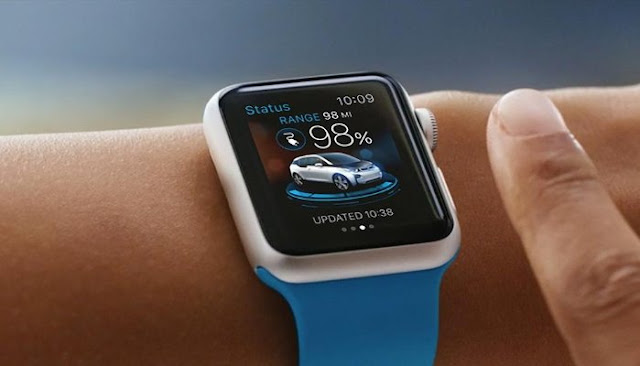Consider the panic rumors about Apple making a car caused in the automotive industry. Comments from chief executives at carmakers ranged from a sober "we take them very seriously" to an echo of Nokia's reaction to the first generation iPhone "the automotive industry is too mature for Apple to be successful".
But could they really make a car? Of course they could. Apple's war chest is big enough to simply buy out a couple of the world's most prestigious carmakers. But Apple could also take a more familiar approach. Taiwanese original design manufacturers (ODMs) like Foxconn are itching to grab their share of the automotive industry but it would be a stretch to see them making an entire car in the way they make iPhone, iPad, Watch, iMac and MacBook any time soon. But there is the equivalent of an ODM in the automotive industry, the Canadian-Austrian company Magna. Magna's site in Graz, Austria has decades of experience in engineering and manufacturing entire vehicles. Currently, the Mercedes G-class, the Mini Countryman and the Mini Paceman are made by Magna in Graz. Magna has been emphasizing for years that they could act as a one stop shop for anyone who wants to launch a new vehicle and they demonstrate this with prototypes presented at auto shows like the Magna Mila Plus plug-in hybrid shown in Geneva in March 2015. So nobody should be surprised that high ranking Apple executives did in fact show up in Graz and talk to Magna.
The key question though is not whether Apple will or will not make a car but how the established carmakers will react to the challenge from Silicon Valley. After all, Tesla is already a very real threat to them and Google also appears to be serious with its plans for a self steering car. Tesla's model S was a shock to the automotive industry. Everybody expected the Tesla to perform poorly in crash tests and in handling but the opposite was true. Since there is no engine under the hood that threatens to penetrate the passenger compartment in the case of a frontal crash, a couple of aluminum tubes perform better than complicated crash boxes in comparable large Audis, BMWs and Mercedes. Similarly, a lot of quite heavy batteries in the Tesla's sandwich floor make it behave rather like Ferrari than a four door sedan. Luckily for the old carmakers, the current low gas prices give them a bit of a break but who knows when the next price hike comes.
More worrying than the surprisingly good performance of Silicon Valley cars, is their electronic architecture. Tesla's model S has been dubbed a smartphone on wheels and this it what it essentially is. The majority of Tesla's people in Fremont have a background in high tech consumer electronics and it shows in the car. Where others have arrays of switches and dials, the model S sports large touch screens. Every Tesla is continuously online and receives software updates to keep it fresh. Consumer electronics teaches people to deal with technology cycles of a year or less. Compare this to technology cycles in the automotive industry of many years. If car makers want to avoid the fate of Nokia and Blackberry, they need to embrace a consumer electronics mindset now. Over the next decade, the combustion engine - so far one of the key differentiators in the automotive industry - will be tamed by emission regulation. Look at the Mercedes S 300 Bluetec Hybrid for a flavor of what is to come. It combines a four cylinder diesel engine with an electric motor. Going forward we can expect this to become the norm. With nothing exciting under to hood and being stuck in traffic jams most of the time, customers will turn to different buying criteria. How well the car integrates with the ecosystem defined by their smartphone may become the key one. And this is where all traditional carmakers perform poorly.




Post A Comment:
0 comments: